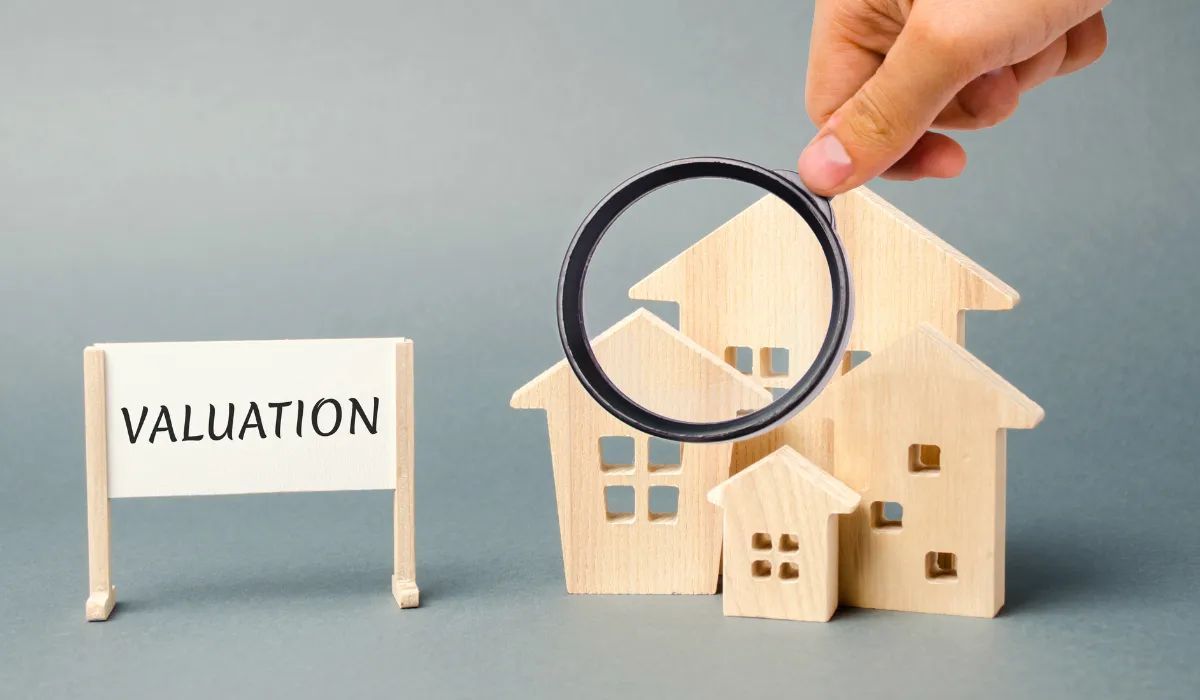Effortless Estate Liquidation: Unlocking Value with Seamless Solutions
Estate liquidation can often feel like an insurmountable task.
The thought of sorting through years of accumulated belongings, determining their value, and deciding what to keep, sell, or donate can be overwhelming.
However, with careful planning and the right strategies, an estate liquidation sale can transform from a daunting challenge into a rewarding and efficient experience.
In this comprehensive guide, we’ll explore the nuances of conducting an estate liquidation sale, offer practical tips for maximizing value, and discuss how to create a seamless process that honors the past while preparing for the future.
Understanding Estate Liquidation
At its core, estate liquidation refers to the process of selling off assets from an estate.
This can happen for a variety of reasons—whether due to the passing of a loved one, the need to downsize, or simply a desire to declutter.
Regardless of the motivation, the primary goal remains the same: to convert tangible items into cash.
When executed effectively, an estate liquidation sale not only provides financial relief but also allows for a respectful and meaningful transition from one phase of life to another.
The Importance of Planning
Before diving headfirst into an estate liquidation sale, it’s essential to take a step back and plan thoroughly.
Assessing the Situation
Begin by evaluating the situation at hand.
Identify the items available for sale, whether they are valuable antiques, household goods, or personal effects.
Create a detailed inventory of possessions, categorizing them by type and estimated value.
This list will not only help you determine what’s worth selling but also guide your overall strategy.
Setting Realistic Goals
Establishing clear objectives is crucial for a successful estate liquidation.
Do you have a specific monetary goal in mind?
Are you looking to clear out the space quickly, or are you focused on maximizing profit?
Understanding your priorities will help shape your approach and facilitate decision-making throughout the liquidation process.
Choosing the Right Method
There are several methods for conducting an estate liquidation sale, each with its own set of advantages and disadvantages.
Choosing the right approach is key to achieving your goals.
Traditional Estate Sale
A traditional estate sale involves setting up a sale at your home, inviting buyers to browse and purchase items in person.
This method allows you to create a welcoming atmosphere where buyers can see, touch, and evaluate items firsthand.
However, it requires substantial effort in terms of setup, marketing, and managing the sale on the day itself.
Online Estate Sale
With the rise of e-commerce, online estate sales have become increasingly popular.
Platforms like eBay, Craigslist, and specialized estate sale websites allow you to reach a wider audience beyond your local area.
This method is often less labor-intensive, allowing you to list items for sale at your convenience.
However, keep in mind that selling online can take longer, and you’ll need to consider shipping costs and logistics.
Auction Services
Engaging an auction service can also be an effective strategy for estate liquidation.
Auctioneers are experienced in valuing items and can help generate competitive bidding.
This approach can lead to higher prices for valuable items, especially antiques and collectibles.
However, it’s important to be aware that auction services typically charge a commission on sales.
Consignment Shops
Selling items through consignment shops offers another avenue for estate liquidation.
In this approach, you place items in a retail setting, where they can be displayed and sold over time.
While this method can attract a steady stream of buyers, keep in mind that consignment shops often take a percentage of the sale.
Preparing for the Sale

Once you’ve determined the method for your estate liquidation sale, it’s time to prepare thoroughly.
Organizing Your Items
A well-organized sale can make a significant difference in attracting buyers.
Begin by categorizing items into clear groups, such as furniture, collectibles, art, and household goods.
This organization will not only make it easier for buyers to browse but will also streamline your own efforts in managing the sale.
Pricing Your Items
Accurate pricing is one of the most critical factors in a successful estate liquidation sale.
Research similar items to gauge fair market values.
Online marketplaces and auction results can provide valuable insights.
For particularly valuable or unique items, consider enlisting the help of an appraiser to ensure you set a competitive price.
Marketing Your Sale
Effective marketing is crucial for attracting potential buyers to your estate liquidation sale.
Utilize social media platforms, local classifieds, and community bulletin boards to spread the word.
Create engaging visuals and compelling descriptions for your listings to capture attention.
Consider hosting an open house or preview day before the sale to generate interest and allow potential buyers to view items firsthand.
The Day of the Sale
On the day of your estate liquidation sale, it’s essential to ensure everything runs smoothly.
Set Up Early
Arriving early to set up your space is key to creating an inviting atmosphere.
Organize items clearly and ensure prices are visible.
Consider using signage to guide buyers and highlight featured items.
A well-arranged sale will encourage more foot traffic and engagement.
Manage Transactions
Prepare for transactions by ensuring you have enough change on hand and a reliable method for processing payments.
Offering multiple payment options—such as cash, credit cards, and digital wallets—can also facilitate smooth transactions.
Customer Interaction
Engaging with customers during the sale can significantly enhance the overall experience.
Be friendly and approachable, welcoming questions about items and providing additional information when requested.
This interaction fosters a positive atmosphere and can encourage buyers to make purchases.
Handling Negotiations
Be prepared for buyers to negotiate prices.
Many buyers expect to haggle, so being open to reasonable offers can help you move items quickly.
Having a firm understanding of your pricing and what you’re willing to accept will aid in these discussions.
Post-Sale Actions
Once the sale has concluded, take time to evaluate the outcome.
Assess What Remains
After the estate liquidation sale, take stock of any unsold items.
Determine whether to donate, dispose of, or hold onto these items for future sale.
Consider donating items to local charities or organizations, as this can provide a sense of closure and benefit those in need.
Evaluate Financial Results
Calculate the total earnings from your estate liquidation sale.
Compare this figure to your initial goals to understand how successful the sale was.
This evaluation will provide valuable insights for future sales or estate planning.
Thank Your Buyers
If you had a good turnout, consider expressing gratitude to your buyers, especially if you collected their contact information.
A simple thank-you note or email can build goodwill and potentially lead to future sales or referrals.
Tips for Success
To further ensure the success of your estate liquidation sale, consider the following tips:
Stay Organized
Keeping detailed records of what sells and at what price is crucial for understanding the financial outcome of your sale.
This information is invaluable for future reference and can help you set realistic expectations for subsequent liquidation efforts.
Be Flexible
Flexibility can be a game-changer during an estate liquidation sale.
Be prepared to adjust prices based on buyer interest and market demand.
This adaptability can help you move items that might otherwise linger unsold.
Maintain a Positive Attitude
The emotional nature of estate liquidation can make the process challenging.
Keeping a positive mindset will help you manage stress and engage better with buyers.
Approaching the situation with optimism can lead to a more successful and fulfilling experience.
Seek Professional Help
If the thought of handling an estate liquidation sale feels too overwhelming, consider hiring professional estate liquidators.
These experts can manage all aspects of the sale, from pricing to marketing, allowing you to focus on other priorities.
Their experience can save you time and help ensure a successful outcome.
The Emotional Aspect of Estate Liquidation
It’s important to recognize that estate liquidation is not solely a financial transaction; it often carries significant emotional weight.
Items may hold deep memories or represent cherished moments in your life.
Acknowledge Sentiments
Take time to reflect on the items you’re selling, especially those that hold sentimental value.
Consider setting aside a few cherished possessions for yourself or family members as a way to preserve those memories.
Honor the Memories
Think about ways to honor the memories associated with items being sold.
You might create a scrapbook, write down stories about the items, or take photographs before parting with them.
This practice can provide a sense of closure and help you transition smoothly into the next chapter of your life.
Involve Family Members
If the estate liquidation is prompted by the passing of a loved one, involve family members in the process.
Discuss which items are meaningful and allow them to contribute to the decisions about what to keep or sell.
This can foster a sense of unity and help everyone cope with the emotional aspects of the situation.
Conclusion
Conducting an estate liquidation sale can be a practical and efficient way to manage your possessions.
By following a structured plan and utilizing the right strategies, you can unlock the value of your items while ensuring a smooth process.
Focus on organization, effective marketing, and maintaining a positive attitude throughout the journey.
With these strategies, your estate liquidation can become not only a successful venture but also a meaningful chapter in your journey.
FAQs
What items sell best at estate liquidation sales?
High-demand items typically include antiques, vintage furniture, collectibles, artwork, and jewelry.
However, everyday household items in good condition can also attract buyers.
How can I maximize profits from my estate liquidation sale?
To maximize profits, research item values, price items competitively, and promote your sale effectively.
Engaging with customers can also enhance sales.
Should I hire a professional estate liquidator?
Hiring a professional estate liquidator can be beneficial if you’re feeling overwhelmed or lack experience.
They can handle logistics, pricing, and marketing, potentially leading to higher returns.











